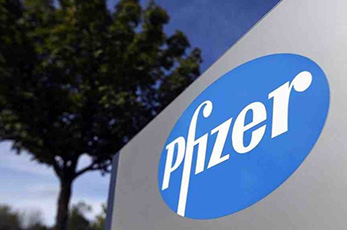Was The Washington Post careless in its reporting last week that Pfizer hid information that could lead to an Alzheimer’s cure? Some members of the medical community say, “yes.”
Last week, The Washington Post reported that Pfizer buried data that one of their drugs, Enbrel (etanercept), might prevent Alzheimer’s disease.
The WaPo story called into question whether Pfizer decided against a clinical trial because their Enbrel patent was set to expire, and thus could not profit from their findings. Could that also be why they hid their findings, the newspaper asks.
This incendiary portrait of the big-pharma company sent shockwaves through the Alzheimer’s community and the public at large.
Days later, some members of the scientific community are taking to social media and science blogs to temper excitement over Enbrel as a possible cure and outrage at Pfizer for allegedly burying important research. These commentaries call into question whether The Washington Post might have been hasty in running to press without the full picture.
The story is much more complicated than that, says biopharma journalist John Carroll, in Endpoints News.
Pfizer’s Findings on Enbrel and Alzheimer’s Weren’t “Notable”
Pfizer had discovered an Alzheimer’s risk reduction in patients using Enbrel, a rheumatoid arthritis drug, while analyzing hundreds of thousands of insurance claims.
“As someone who has learned to study and try to interpret claims data, I would have to say that the results are barely notable,” Pierre N. Tariot, MD, director of the Banner Alzheimer’s Institute in Phoenix, told Being Patient. “That is, there is a huge difference between diagnoses and claims, and there are myriad factors that could result in differences in claims results that have nothing to do with presence or absence of Alzheimer’s diagnosed clinically.”
This type of research, agrees Carroll, “has led one company after the next to keep barreling down the Alzheimer’s path to failure after failure.”
Related: Biogen Ends Late-Stage Alzheimer’s Trials, Crushing Hopes and Calling Amyloid Into Question
Did Pfizer Really Cover Up Important Enbrel Data?
Carroll also points out that while The Post focuses on the fact that Pfizer didn’t publish their findings, they downplay the fact that the company did give one researcher the use of their information to apply for a grant to do his own research on the topic.
When the independent group reviewed the data, they denied the grant for further research.
In a blog post on the Science Translational Medicine web site, Derek Lowe, PhD, who’s worked for several pharmaceutical companies on drug discovery projects, including Alzheimer’s, agrees that the data Pfizer had about Enbrel “is not amazing.”
He goes on to say that claiming Enbrel could reduce Alzheimer’s risk by 64 percent “betrays an extreme lack of knowledge about clinical data and drug development,” and that Pfizer’s data was not enough to launch any sort of clinical trial.
This backs up Pfizer’s decision not to pursue the drug.
The pharmaceutical company had told The Post that after three years of internal review, they found “Enbrel did not show promise for Alzheimer’s prevention because the drug does not directly reach brain tissue.” Based on that, they believed chances of a clinical trial success was low.
“I don’t see an awful lot to go on here,” agrees Tariot, “particularly in the absence of central nervous system penetration.”
Did Pfizer Stand to Lose Money on Enbrel Research?
As for the suggestion that Pfizer might not pursue its own internal research due to its patent on Enbrel ending?
Lowe points out that had Pfizer believed Enbrel to be a viable treatment, it would likely have investigated modified forms of Enbrel that could penetrate the brain. This, says Lowe, would be patentable as a new drug — and extremely profitable.
Read Next: More Evidence Flickering Light Therapy May Reduce Alzheimer’s





Hi there,
everybody is entitled to an opinion, but I do not think people from Pfizer will go to so much trouble to leak the info, if the data was not strong. At what clinical trial a company will be able to investigate 500k patients?
The WP articles argues about Pfizer not publishing the data, no one argues about not pursuing it. If the data is so bad, why are they still hiding it.
T
The most up to date research says Alzheimer’s is a poly-microbial prion infection. I do not see Enbrel as a treatment for infections. It does the exact opposite.
My wife 80 years old has short term memory loss. But she walks 2 to 3 miles a day and the
exercise appears to be quite helpful. She is very active and the question is can physical
activity have any impact on slowing alzheimers?
Hi George,
We have done an interview with Wendy Suzuki, who is a New York University neuroscientist looking at how exercise impacts the brain. She is taking a fascinating approach to studying exercise and the brain. Here’s our interview:
https://www.beingpatient.com/wendy-suzuki-exercise-brain/
The Being Patient Team
My mother was diagnosed with ALS in june 2015. Her doctor put her on riluzole, letting her know there was no cure but the medication might provide her a few more months of delayed symptoms. ALS progresses at different rates and affects different body parts first. My mother, being 80 at the time, fell into a category of what they call “fast progression” (older female). Her arms weakened first, then her hands, her mouth, and throat, and finally her lungs. Throughout her years ordeal, she was able to walk with assistance. We have to give a try on herbal supplement which effectively get rid of herbal ALS condition dramatically after her 15 weeks of her usage,she lost touch with reality. Suspecting it was the medication I took her off the riluzole (with the doctor’s knowledge) and started her on the ALS natural herbal formula we ordered. it advisable to always try natural herbs at first because totalcureherbsfoundation.com neutralize her ALS/MND which surprise everyone at home.